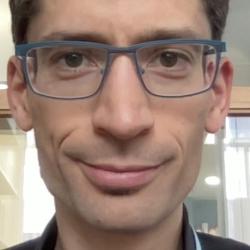Biography
During his career, Alberto has used chicken embryology and sophisticated mouse genetics to determine how individual cells collect and process internal and external information to make decisions, and how the combination of these individual decisions leads to robust and precise organogenesis. He uses the vertebrate limb as a model to address these questions.
Alberto received his BSc/MSc degrees in biochemistry and molecular biology from the University of Zaragoza, Spain. He then completed his PhD in 2011 in Molecular Biology (Autonomous University of Madrid) at the Spanish National Centre for Cardiovascular Research (Madrid, Spain), in the group of Dr. Miguel Torres. His PhD work, focused on the control of limb patterning by intrinsic and extrinsic mechanisms, was included in Gilbert’s Developmental Biology textbook. During his postdoc at the Memorial Sloan Kettering Cancer Center (New York, USA) with Dr Alex Joyner (2012-2018), he pioneered mouse genetic models of unilateral perturbations of limb growth to study the repair of developmental defects, finding that cell-non autonomous responses play a key role in this repair. In June 2018 he joined the Australian Regenerative Medicine Institute (Monash University, Melbourne) as a Group Leader, where his lab studied the organ-repair responses activated by developmental perturbations, with a focus on the long bones of the limbs. In June 2023 he joined the University of Cambridge as Associate Professor in Developmental Genetics, with a joint appointment between the Dept. of Physiology, Development and Neuroscience, and the Dept. of Genetics. A new line of work at Cambridge will use inter-species chimeras to study if/how the patterning, tempo and size of the limb are affected by the embryonic environment of a different species.

